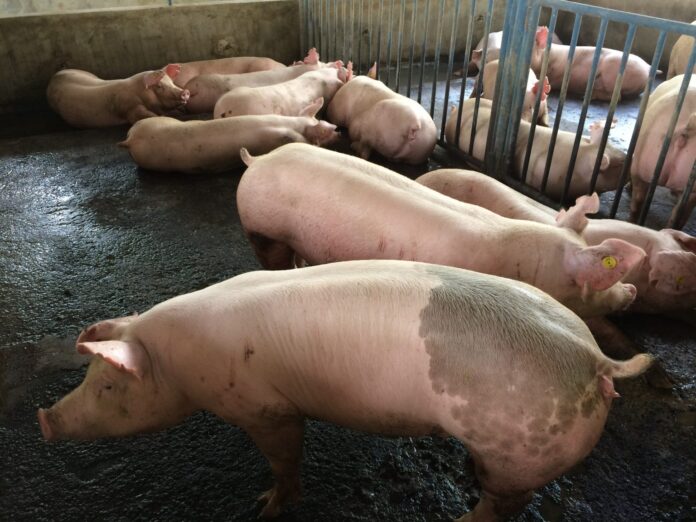-
The government’s economic team and the Senate have reached a compromise on tariff rates and minimum access volume (MAV) for pork imports
-
The economic team recommended adjusting tariff rates to 10% for in-quota pork imports and 20% for out-quota for the first three months; and 15% for in-quota and 25% for out-quota for the remaining nine months
-
The two sides also agreed that the MAV be reduced from 404,000 metric tons to 254,210 MT
-
The revised pork import tariffs will be submitted to the National Economic and Development Authority Board for endorsement to the Office of the President
The Philippine government’s economic team and the Senate have reached a compromise on the tariff rates and minimum access volume (MAV) on pork imports, according to the Department of Agriculture (DA).
DA in a statement said the Senate has accepted the economic team’s recommendation to modify the tariff rates under Executive Order (EO) No. 128, which temporarily reduces the most-favored nation (MFN) tariff rate on pork imports within the minimum access volume (MAV) for a year.
READ: Duterte signs EO lowering tariff for pork imports
The economic team met with Senate president Vicente Sotto III four times, on April 28, April 30, May 3, and May 4, to discuss a middle ground.
DA said the economic team, in discussions with the Senate, recommended that the tariff rates in EO 128 be adjusted to 10% for in-quota pork imports and 20% for out-quota for the first three months; and 15% for in-quota and 25% for out-quota for the remaining nine months.
EO 128 had reduced the MFN tariff rate on pork imports in-quota from 30% to 5% for the first three months upon effectivity of the order, and to 10% for the fourth to 12th month. Pork imports outside the MAV will be slapped a lower tariff of 15% for the next three months and 20% for the succeeding nine months from the current 40%.
The economic team and the Senate also agreed that the MAV be reduced from 404,000 metric tons (MT) to 254,210 MT.
“Given that we have reached a compromise, we will act without delay to reflect the features of the compromise in a corresponding executive issuance,” DA Secretary William Dar said.
The DA chief will submit the revised pork import tariffs to the National Economic and Development Authority (NEDA) Board through socioeconomic planning secretary Karl Kendrick Chua. The NEDA Board will in turn make the final recommendation to the Office of the President.
“We appreciate the quick resolution of this issue. A problem of this scale, especially when incomes and job opportunities have declined, needs immediate and urgent action,” Dar said.
EO 128, issued last April 7, notes that there is “an urgent need to temporarily reduce” the MFN tariff rates on fresh, chilled or frozen meat of swine to address the African Swin Flu (ASF) outbreak’s impact on pork meat supply and price in the Philippines.
However, lawmakers and various local hog raisers groups have aired their concern that reducing the import tariff and increasing the MAV would be disadvantageous for the local hog industry.
READ: Senate seeks scrapping of EO on pork tariff
Senators Franklin Drilon, Francis Pangilinan, and Cynthia Villar earlier said they would file a joint resolution to revoke the EO, which was signed while Congress was in recess.
Dar, however, argued that the issuance of EO 128 “is an urgent short-term measure.”
“We are still aggressively taking steps to help the domestic industry recover from ASF,” Dar said, noting these actions include the “Bantay ASF sa Barangay” and its twin hog repopulation program.
The Land Bank of the Philippines and Development Bank of the Philippines are also setting aside P30 billion and P12 billion, respectively, to lend to commercial swine raisers.
“But these long-term measures take time. We need an immediate strategy to temper the current high pork price situation,” Dar said.





